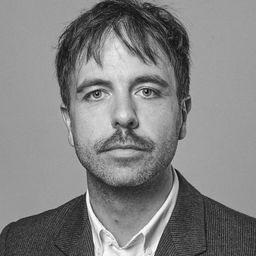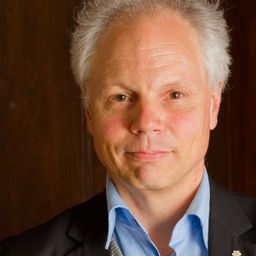
Sessions in which Laurence Côté-Roy participates
domingo 5 junio, 2016
Sessions in which Laurence Côté-Roy attends
viernes 3 junio, 2016
Qu’est-ce que le patrimoine change à Montréal? Qu’est-ce que Montréal change au patrimoine? Ce débat vise à mettre en discussion l'évolution et le devenir du patrimoine dans la métropole du Québec en interrogeant les motifs de l'attachement (ou de l'indifférence) de la société civile et des décideurs, mais aussi en questionnant les moyens dont ils disposent pour agir sur le patrimoine. Au-delà de la fameuse "pierre grise" et des matériaux expressifs de l'identité historique de Montré...
sábado 4 junio, 2016
What if we changed our views on heritage? And if heritage has already changed? While, on the global scene, states maintain their leading role in the mobilization of social and territorial histories, on the local scale, regions, neighbourhoods and parishes have changed. Citizens and communities too: they latch on to heritage to express an unprecedented range of belongings that no law seems to be able to take measures to contain, often to the discontent of...
The notion of heritage is closely linked to processes of change. In the Western context, the definition of heritage as "a contemporary product shaped from history" (Harvey 2010) highlights the extent to which our relationship with the past is being continually re-configured. However, there is a future dimension implied in this relationship that is often neglected; to paraphrase William Morris, the sense in which heritage testifies to the hopes and aspirations of those now passed away. Making ...
Dans le cadre de cette session, nous souhaitons faire, dans une perspective multidisciplinaire et critique, un état des lieux qui interroge doublement, à la lumière de trois axes que sont la narrativité, la temporalité et la performativité, la patrimonialisation des sujets sensibles tant sur ses rôles, ses formes et ses effets sur les sociétés qui les entreprennent, que sur sa fonction révélatrice d’un monde en changement. L’espace public laisse une place grandissante aux objets, aux li...
Since the beginning of the 19th century religious buildings and artefacts of the West have been involved in a continuous process of musealization. In the time-period subsequent to the Second World War, the general forces of secularisation increasingly turned religious buildings, most of them churches, into heritage and substantial parts of Christian practices into history. On a global scale (Western), conservation and heritage practices have been applied on tangible and intangible expressions...
Le patrimoine n’est pas un donné, c’est un construit culturel et social, dynamique et itératif (Gravari-Barbas). La construction patrimoniale est la construction d’une croyance à partager/imposer. Le statut d’objet patrimonial que l’«on» (experts, élites, décideurs…) donne à un objet suppose de le saisir comme spécifique. C’est aussi l’occasion d’une saisie de la dynamique qui amène la spécificité patrimoniale, cette même dynamique qui est le terrain d’action des politiques, des prises en cha...
Heritage practices often lead to social exclusion. As an "Authorized Heritage Discourse" (AHD) (Smith 2006) may define what is considered to be heritage, a certain set of social values can come to exclude other values. By formulating heritage policies which reproduce the existing AHD government may further such exclusion. Every now and then AHDs are challenged, leading to what political scientists like Ross (2007; 2009) call "cultural contestations" between groups. These are surrounded ...
domingo 5 junio, 2016
"What does heritage change?" is a multifaceted question to which the answer(s) are in primary respects related to real-life negotiations among different groups of citizens, cultures, races, ethnic groups, sexual identities, and social classes about received, official and/or widely accepted or accomodated intangible attributes, cultural traditions, historic monuments, buildings, and other transmitted or revived historical legacies. Heritage designated by and for whom, for what motivations, an...
lunes 6 junio, 2016
Architectural historian John R. Stubbs suggests that architectural conservation is concerned with historic buildings and their sites as well as their associated accoutrements, such as furnishings and fittings. But what happens if the building itself is not seen as “historic” or even worthy of a heritage designation, much less conservation, while its site and furnishings are significant in aesthetic, cultural or social terms; in other words what happens when a building’s decorative arts tru...
This session seeks to explore the role of urban heritage in mediating and contesting political conflict in the context of divided cities. We take urban heritage in a broad sense to include places left, scarred or transformed by geo-political dispute, national and ethnic division, violence and war. The case studies can include tangible spaces such as elements of border architecture, historic sites, ruins and urban traces of the conflict, and memorials; as well as intangible elements of city, i...
This session will address the potential and limitations of heritage as a tool for leverage, empowerment and dissent in Africa. It is widely acknowledged that heritage—the selective valuation and use of the past in the present—can be an oppressive. Heritage work in Africa has even been characterized as "an instrument for dictatorship" (Peterson et al. 2015:28) because it is often implicated in upholding particular narratives and political orders, imposing a singular vision onto a heterog...
martes 7 junio, 2016
As the interface between past and present, heritage is deeply involved in articulations of personal and group identity, working to unite and harmonize group relations, and, simultaneously causing frictions, fractions, and violence. Critical heritage theory reveals that values and approaches to heritage are articulated both within and across regions (such as Asia, or Europe). A vital, and as yet unanswered, question centres on the degree to which heritage in Asia fundamentally differs from ...





